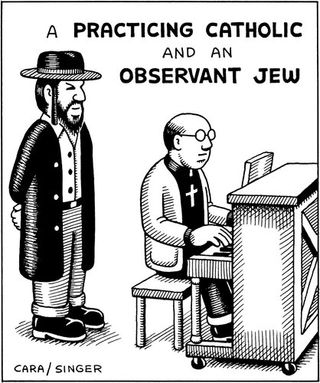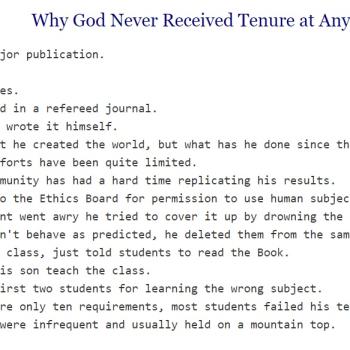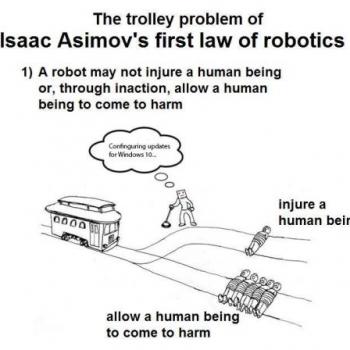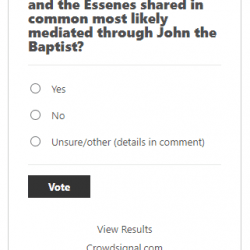A post about philosophy and humor appeared on 3quarksdaily. It included this famous bit of humor:
There is a well-known joke about Talmudic interpretation. A Jew is talking to his Rabbi.
Rabbi,” the man said, “Explain the Talmud to me.”
“Very well,” he said. “First, I will ask you a question. If two men climb up a chimney and one comes out dirty, and one comes out clean, which one washes himself?”
“The dirty one,” answers the man.
“No. They look at each other and the dirty man thinks he is clean and the clean man thinks he is dirty, therefore, the clean man washes himself.”
“Now, another question:
If two men climb up a chimney and one comes out dirty, and one comes out clean, which one washes himself?”
The man smiles and says, “You just told me, Rabbi. The man who is clean washes himself because he thinks he is dirty.”
“No,” says the Rabbi. “If they each look at themselves, the clean man knows he doesn’t have to wash himself, so the dirty man washes himself.”
“Now, one more question.
If two men climb up a chimney and one comes out dirty, and one comes out clean, which one washes himself?”
“I don’t know, Rabbi. Depending on your point of view, it could be either one.”
Again the Rabbi says, “No. If two men climb up a chimney, how could one man remain clean? They both are dirty, and they both wash themselves.”
The confused man said, “Rabbi, you asked me the same question three times and you gave me three different answers. Is this some kind of a joke?”
“This is not a joke, my son. This is Talmud.”
The Talmud is a famous example of seeking answers within a religious framework in a manner that does not assume there is only one possible answer. It is not infinitely open to plurality, but it regularly gives voice to minority and individual viewpoints. And in doing so, it shows that in order to seek to be faithful to a tradition, one does not have to take the fundamentalist approach of shutting down dialogue or seeking to exclude and/or silence all who disagree with one’s own viewpoint.













